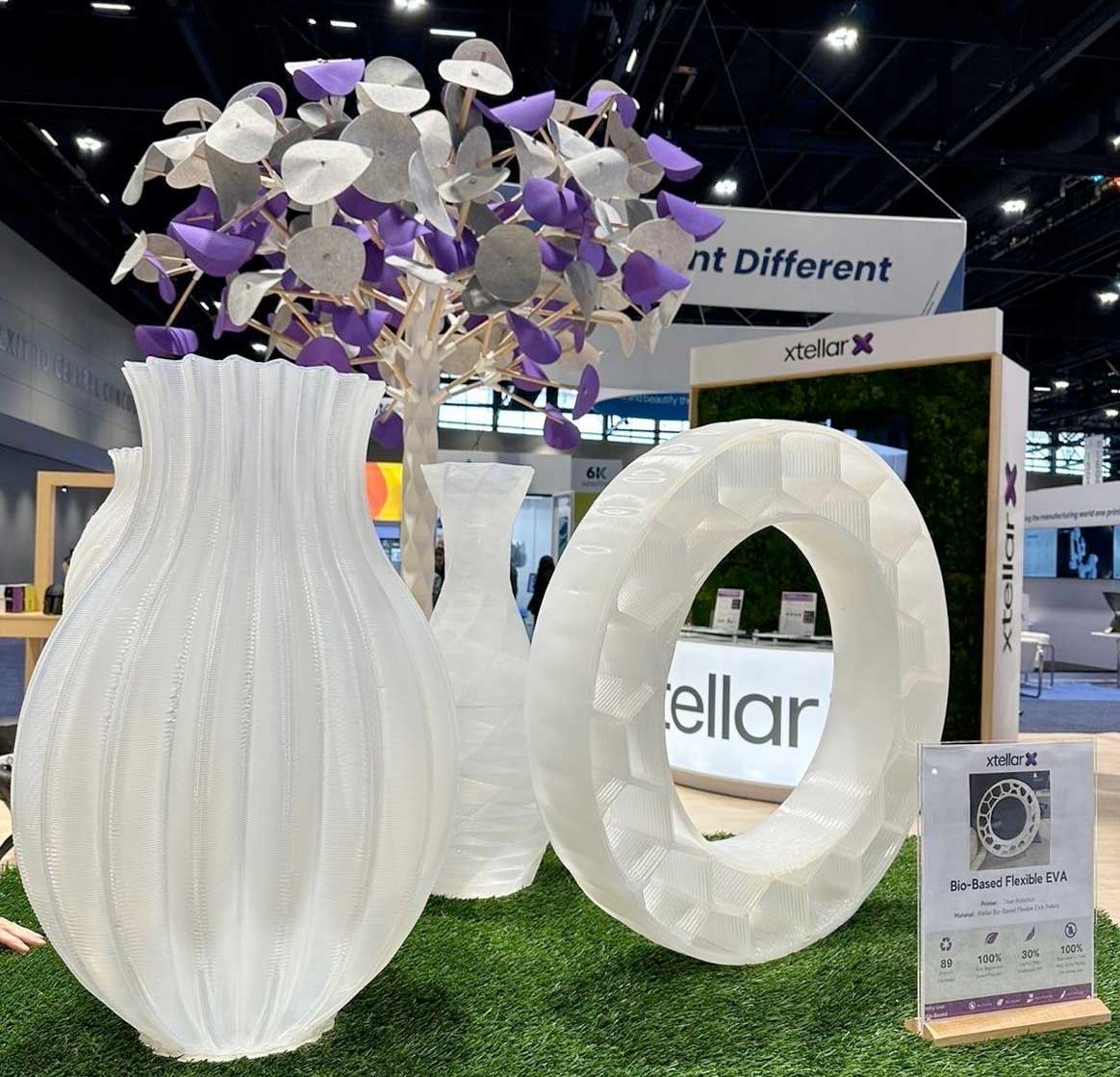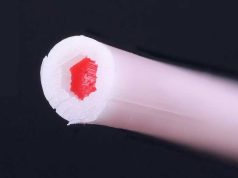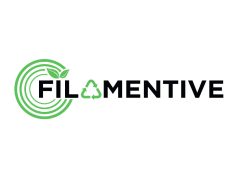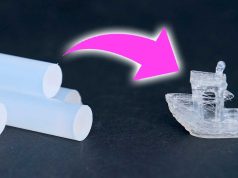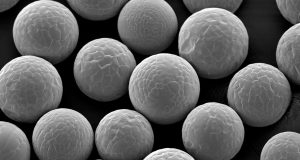Xtellar, a 3D printing materials specialist formed from the merger of the 3D materials division of Braskem and Taulman3D, has introduced a new material for large-format 3D printing. Xtellar’s bio-based EVA granules offer flexibility and sustainability for a variety of pellet-compatible large-format 3D printers.
Xtellar, a leading provider of innovative 3D printing materials, introduces an industry first for large-format 3D printing: bio-based EVA granules. Derived from sustainable sugarcane, this material offers flexibility and sustainability for numerous pellet-compatible large-format 3D printers.
Xtellar’s bio-based polymers represent an evolution of sustainable additive manufacturing solutions. They have a smaller carbon footprint than traditional fossil fuel materials.
“Bringing a wider variety of sustainable material options to 3D printing is one of Xtellar’s core missions. In 2022, we launched the industry’s first bio-based polyethylene and flexible EVA 3D printing filaments, and this year we continue our mission by launching the first bio-based flexible EVA pellets specifically formulated for large-format 3D printing applications,” said Jason Vagnozzi, CEO, Xtellar.
Xtellar’s bio-based EVA granules are a sustainable alternative to traditional flexible TPE and TPU materials. They offer a unique combination of sustainability, flexibility, stretchability and moisture resistance.
“This material is an excellent sustainable alternative to many traditional TPU materials currently used for additive manufacturing and reaffirms our commitment to a more circular, carbon-neutral future. We couldn’t be more excited about this latest addition to our product portfolio and will continue to innovate more sustainable options to meet our clients’ growing needs for more sustainable 3D material alternatives,” Vagnozzi continued.
Subscribe to our Newsletter
3DPResso is a weekly newsletter that links to the most exciting global stories from the 3D printing and additive manufacturing industry.



